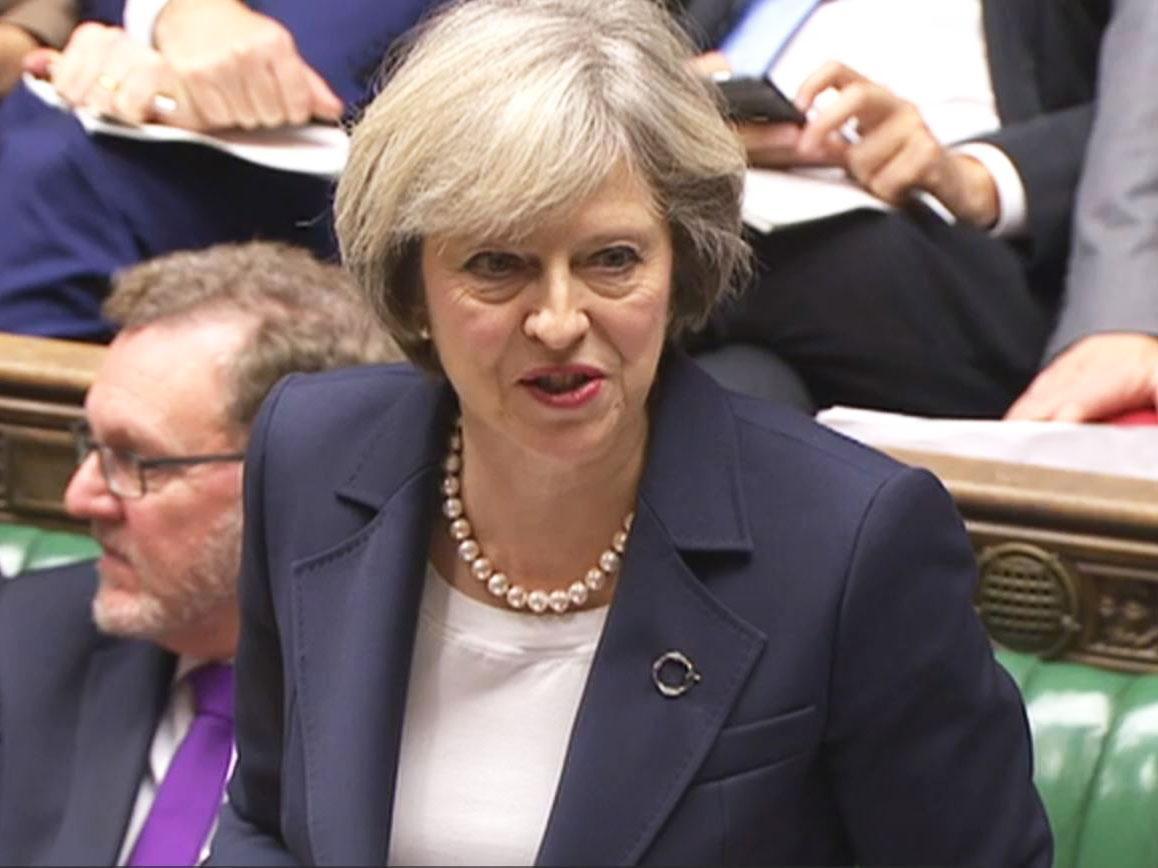Brexit appeal: Theresa May backs independence of judges ahead of Supreme Court judgement
Prime Minister maintains Article 50 will be triggered by the end of March 2017

Your support helps us to tell the story
From reproductive rights to climate change to Big Tech, The Independent is on the ground when the story is developing. Whether it's investigating the financials of Elon Musk's pro-Trump PAC or producing our latest documentary, 'The A Word', which shines a light on the American women fighting for reproductive rights, we know how important it is to parse out the facts from the messaging.
At such a critical moment in US history, we need reporters on the ground. Your donation allows us to keep sending journalists to speak to both sides of the story.
The Independent is trusted by Americans across the entire political spectrum. And unlike many other quality news outlets, we choose not to lock Americans out of our reporting and analysis with paywalls. We believe quality journalism should be available to everyone, paid for by those who can afford it.
Your support makes all the difference.Theresa May has refused to criticise the Supreme Court judge who said the Government may have to go through the lengthy process of replacing every piece of European Union legislation before the Brexit process could begin.
Speaking during Prime Minister’s questions, Ms May voiced her support for the independence of the judiciary, and maintained the Government was on course to meet its March deadline for triggering article 50 to leave the EU.
Her comments come ahead of an appeal to the Supreme Court over the ruling that parliament must vote in support of Brexit for the move to go ahead.
Baroness Hale is among the 11 judges to whom the Government will appeal over the High Court’s decision.
She angered leave campaigners earlier this month after giving a speech in which she said judges could rule that a single piece of legislation to trigger article 50 may not be enough to begin the Brexit process.
“Another question is whether it would be enough for a simple act of parliament to authorise the Government to give notice, or whether it would have to be a comprehensive replacement of the 1972 act,” Baroness Hale told law students in Kuala Lumpur.
She also said that despite the 51.9 per cent vote in favour of leaving the EU, the “referendum was not legally binding on parliament”.
A legal requirement to replace all existing EU legislation would present a major impediment to the Prime Minister’s aim of triggering article 50 to leave the EU by the end of March.
But During Prime Minister’s Questions, Ms May made light of the Baroness Hale’s stance. She said it was “up to them what they put in their speeches”.
Conservative MP Julian Brazier, asked the Prime Minister what her stance was on judges entering into “speculative public thoughts on cases that they’re about to hear”.
Ms May replied: “We value in this country the independence of our judiciary. That’s the independence of the judiciary when it comes to making their judgements in court.
She added: “It is up to them to determine what they choose to put in their speeches or not, and not for the Government to tell them what to do.”
During the session, Ms May was prompted to reiterate her commitment to begin the Brexit process in March 2017 several times, but offered little detail on how the Government would negotiate Britain’s withdrawal.
“I’m clear that we will trigger article 50 by the end of March next year”, Ms May said.
“The vote was held, the turnout was high, the public gave their verdict. There must be no second referendum, no attempt to weasel out of this.”
She later added: “But it is absolutely right at this stage that we do not set out every piece of our negotiating strategy, because that would be the best way to get the worst possible deal for Britain.”
Join our commenting forum
Join thought-provoking conversations, follow other Independent readers and see their replies
Comments